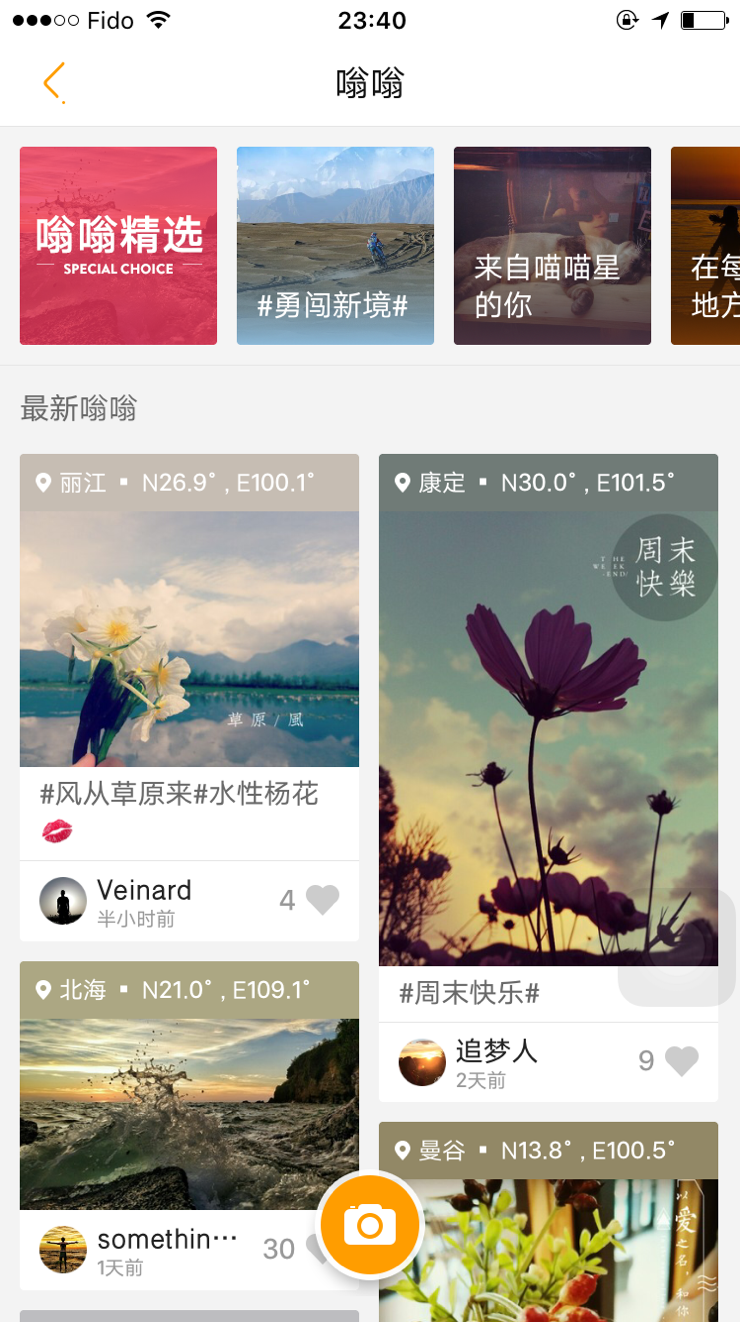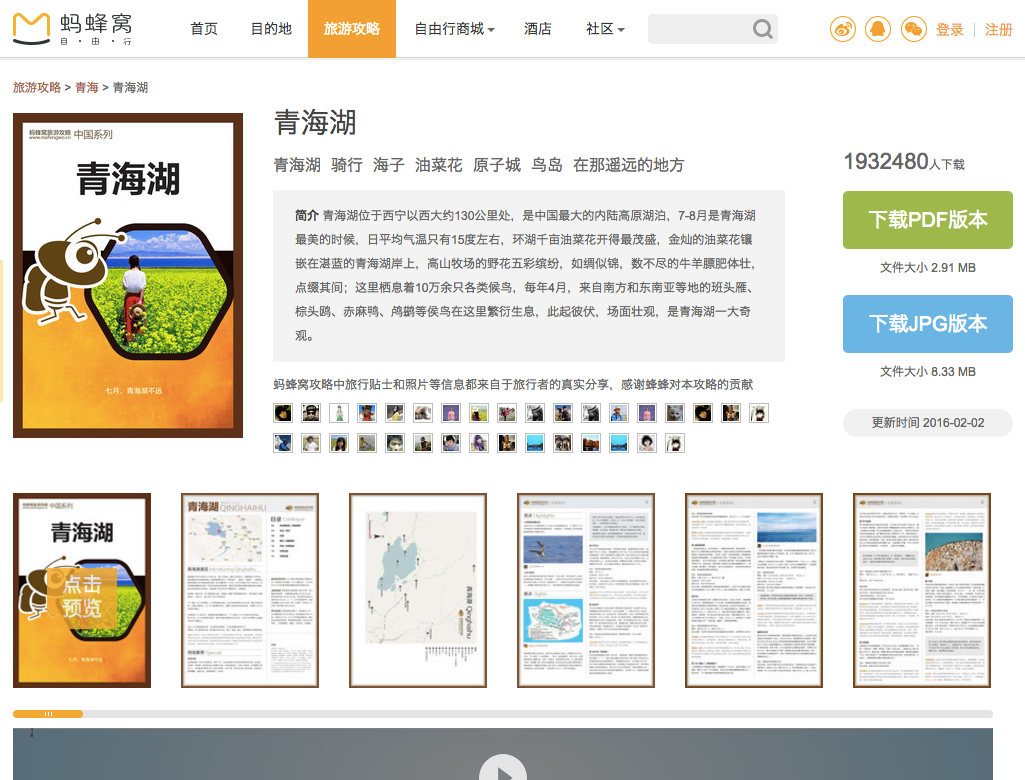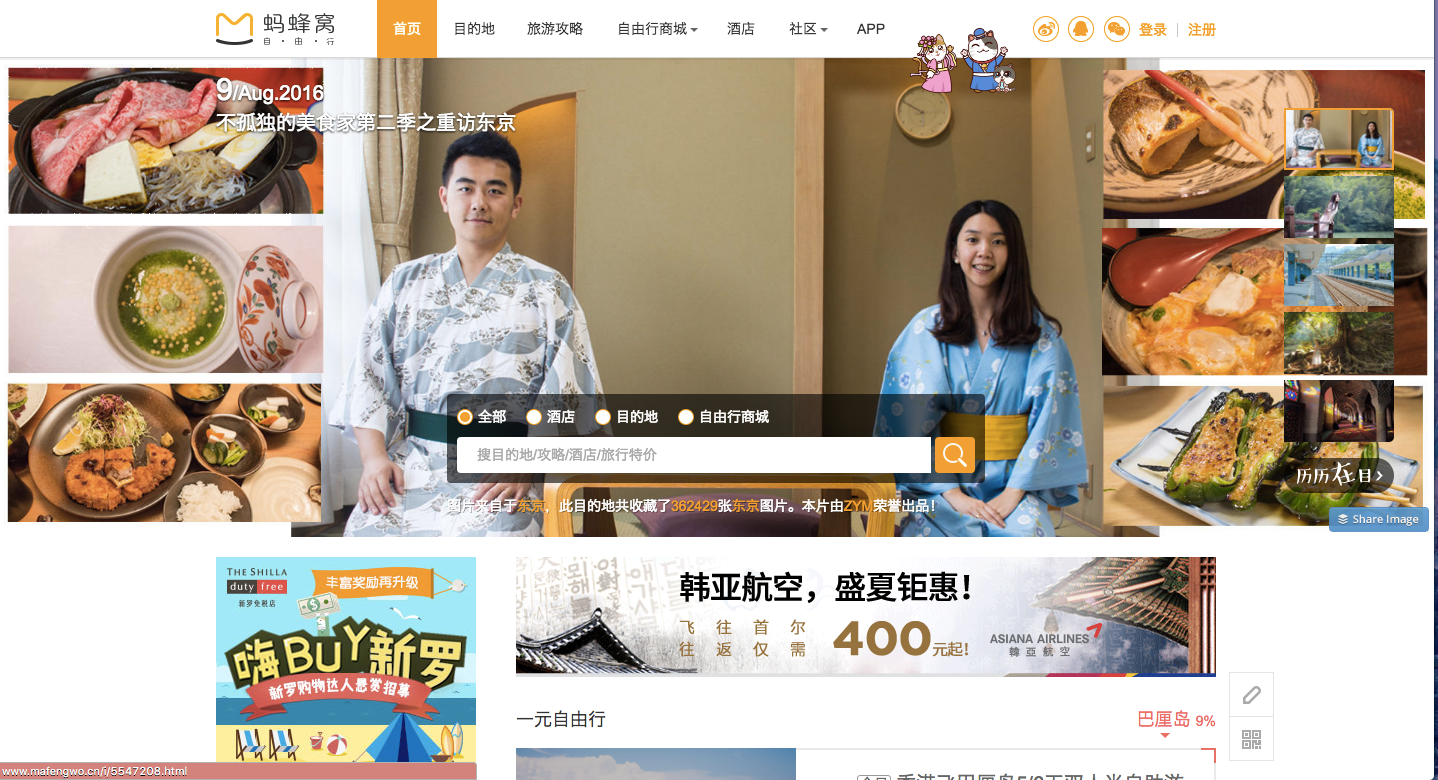As more Chinese tourists are opting for independent travel over package trips, travel social network Mafengwo is on hand to help them plan their trips, handle logistics when they get there, and most importantly, record their experiences for the world to see.
Featuring review-based, user-generated, downloadable travel guides and convenient access to travel products, the app has also built a social community where travel enthusiasts can easily connect with like-minded jetsetters.
The site, officially launched in 2006, has accumulated over 80 million users, a majority of which are active monthly users. Statistics suggest that 80 percent of users are using the site’s mobile application, which offers independent travel products such as hotel and flight booking, travel planning tips contributed by users, Q&A forums where it allows users to interact with each other, visa application agents, and more.

Logistics help is a key part of the appeal of Mafengwo, especially for those traveling solo without the help of a group. The location-based mobile app provides easy access to local information including maps, dining recommendations, and “things to do” in a domestic or foreign city as well as steps to rent portable WiFi and arrange flight pickups or carpooling. In case cellphone data or WiFi accessibility becomes a problem when users travel abroad, Mafengwo provides Lonely Planet-like, Chinese-language travel guides for popular destinations such as Toronto, the Rocky Mountains, and Japan.
Unlike Lonely Planet and many other officially printed travel guides, however, all of Mafengwo’s electronic guides are based on travelers’ personal experience and recommendations. The user-generated content (UGC) caters to Chinese tourists who are increasingly traveling independently. In 2014, over 70 percent of outbound Chinese tourists planned and booked their trips themselves instead of paying for organized tours. Platforms such as Mafengwo are particularly popular among Chinese tourists because online travel reviews—especially UGC on online channels—are a key information source when they are making destination decisions.

Another main feature of Mafengwo is its emphasis on a social community with a passion for travel. A quick scan of Mafengwo’s app would find that it has a Instagram-like section called Wengweng where users are encouraged to share their travel pictures with geo tags. Social travelers can also choose to view “photos taken nearby” and connect with other travel enthusiasts. On Mafengwo’s website, the social feature is even more obvious: users can look for a travel companion by posting their travel plans. Meanwhile, travelers frequently write long blog articles to document their trips, including how they handle the visa application, where they stay while traveling, or what restaurants and unique places they have been to and found good. Popular articles can easily get hundreds of thousands of views, often indirectly promoting the hotels, restaurants, and destinations mentioned in the post.
For investors, what makes this site unique is perhaps its focus on big data and the trend of “Internet+” in China.
“Web 1.0 contributed to the great success of Expedia, Priceline, Ctrip, and other giants (in the travel industry).” said Chen Gang, CEO and co-founder of Mafengwo in a recent Chinese-language interview on 21Jingji. “The ultimate solution to Web 2.0 is ‘Tip 2.0’, meaning the combination of information and transaction.”
Lv Gang, also a co-founder of the company, revealed in an interview with Sina that Mafengwo produces 50TB of data on a daily basis, which includes but is not limited to users’ dining, accommodation, and entertainment preferences. “Based on big data technologies, Mafengwo can process and integrate this information. We can then work with suppliers and provide consumers with what they want.”
The site’s content and data have attracted an investment of US$100 million from Hillhouse Capital, Coatue, Cobuilder, and Qingming Venture Parters in its Series C financing round back in 2015. Rich Barton, founder of the international travel giant Expedia, which is also one of the investors in this round, said that he’s impressed with the excelling performance of Mafengwo’s social community and reviews system and that China’s digital travel market has unlimited potential.
